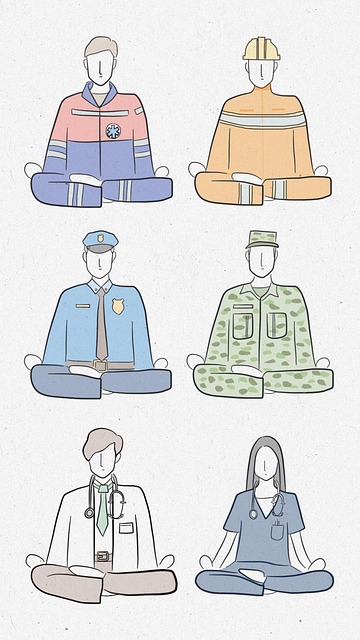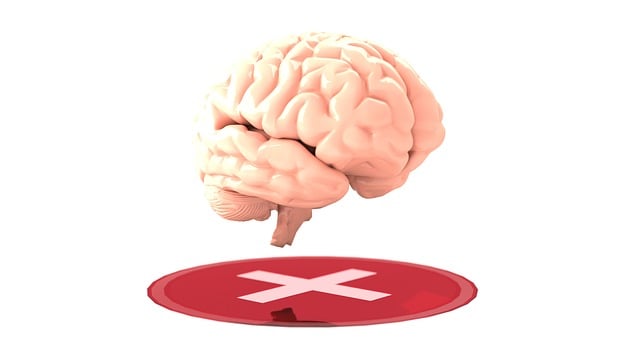Highlands Ranch Anger Management Therapy exemplifies effective risk assessment practices in mental health care. By evaluating triggers, emotional regulation skills, and individual needs, therapists tailor stress reduction strategies for clients. This approach enhances crisis management and promotes long-term recovery. Through structured group sessions, techniques like Social Skills Training and mindfulness meditation help mitigate risks from past traumas or lack of emotional control. Continuous learning and adaptation ensure practitioners stay current with best practices, benefiting both professionals and patients in a robust mental healthcare system.
In the dynamic field of mental health, risk assessment is a cornerstone of safe and effective practice. This comprehensive guide explores essential aspects of risk management specifically tailored to Highlands Ranch Anger Management Therapy settings. From understanding the nuances of risk assessment in mental health to identifying unique hazards, developing robust strategies, and leveraging case studies, we delve into best practices for mitigating risks. Continuous improvement and professional development are crucial, ensuring therapists are equipped to navigate complex situations with confidence.
- Understanding Risk Assessment in Mental Health Practice
- Identifying Potential Hazards in Highlands Ranch Anger Management Therapy Settings
- Developing Comprehensive Risk Management Strategies
- Case Studies: Real-World Application of Risk Assessment
- Continuous Improvement and Professional Development for Mitigating Risks
Understanding Risk Assessment in Mental Health Practice

Risk assessment is a fundamental aspect of mental health practice, enabling professionals to identify and mitigate potential hazards within their clinical settings. This process involves meticulously evaluating various factors that may impact client safety and well-being. By implementing robust risk assessment strategies, mental health practitioners can ensure they are equipped to handle diverse challenges, from managing acute crises to fostering long-term recovery. It’s not just about identifying vulnerabilities; it’s a proactive approach to enhancing patient outcomes.
In the context of Highlands Ranch Anger Management Therapy and related services, understanding risk assessment is crucial. This includes recognizing potential triggers for anger or other emotional intensities among clients, as well as assessing the capacity for self-regulation. Additionally, mental wellness coaching programs development often hinges on thorough risk assessments, which guide the implementation of effective stress reduction methods and mood management techniques tailored to individual needs.
Identifying Potential Hazards in Highlands Ranch Anger Management Therapy Settings

In Highlands Ranch Anger Management Therapy settings, identifying potential hazards is a multifaceted process that requires continuous vigilance. Mental health professionals must be attuned to the unique dynamic of group therapy sessions, where intense emotions can escalate rapidly. Risks may stem from individual clients’ past traumatic experiences, current mental health conditions, or lack of emotional regulation skills. For instance, in a group setting, a client struggling with anger might trigger others, leading to escalated conflicts that can jeopardize the therapeutic environment and the safety of all participants.
Social Skills Training, Confidence Boosting, and Emotional Well-being Promotion Techniques are essential tools to mitigate these risks. By fostering a structured and supportive atmosphere, therapists can help clients develop healthier ways of expressing anger, improve their ability to manage and control emotions, and enhance their interpersonal communication skills. Regular risk assessments during group sessions ensure that potential hazards are identified early, allowing for prompt intervention and de-escalation strategies to be implemented effectively.
Developing Comprehensive Risk Management Strategies

Mental health professionals are constantly navigating a complex landscape of potential risks, from patient confidentiality breaches to ethical dilemmas. To mitigate these challenges, developing comprehensive risk management strategies is paramount. These strategies must be tailored to address the unique dynamics of the profession, encompassing both internal and external factors. For instance, implementing robust data security measures in line with mental health policy analysis and advocacy can safeguard sensitive patient information.
Highlands Ranch Anger Management Therapy offers a practical example of integrating risk mitigation into clinical practice. By incorporating compassion cultivation practices and resilience building techniques into their sessions, therapists can enhance their ability to manage intense emotions and reduce the likelihood of impulsive decisions. This proactive approach not only protects patients but also fosters healthier therapeutic environments, ultimately contributing to more effective mental health care delivery.
Case Studies: Real-World Application of Risk Assessment

In the realm of mental health care, risk assessment is a critical tool that helps professionals navigate complex client situations. Case studies provide an insightful glimpse into this process in action. For instance, consider a scenario at Highlands Ranch Anger Management Therapy where a therapist assesses a patient with a history of violent outbursts. By employing emotional intelligence and mindfulness meditation techniques, the therapist conducts a comprehensive risk evaluation, delving into the patient’s past traumas, current triggers, and potential consequences. This real-world application showcases how mental health professionals can integrate risk management planning into their practices effectively.
Through such case studies, therapists learn to identify subtle cues and develop tailored strategies to mitigate risks. For example, by recognizing the patient’s emotional reactivity and historical patterns, the therapist might suggest specific mindfulness exercises and cognitive-behavioral techniques during therapy sessions. This proactive approach not only ensures client safety but also fosters a more supportive and therapeutic environment, ultimately contributing to positive outcomes in treatment plans for clients with diverse mental health needs.
Continuous Improvement and Professional Development for Mitigating Risks

Mental health professionals must embrace continuous improvement and professional development as essential strategies to mitigate risks and enhance patient outcomes. Regularly attending workshops, seminars, and training sessions focused on emerging therapies, such as Mindfulness Meditation and Anger Management techniques, can boost confidence and refine skills. By staying updated with the latest research and best practices, these professionals are better equipped to navigate complex situations, adapt their approaches, and provide effective care in Highlands Ranch or any other setting.
Encouraging a culture of learning and growth within their practices allows them to identify potential risks early on and implement preventative measures. This proactive approach not only benefits the mental health practitioners but also ensures that patients receive the highest quality of care. Through ongoing development, professionals can explore innovative strategies, improve patient engagement, and foster healthier outcomes, ultimately contributing to a more robust and resilient mental healthcare system.
Mental health professionals in Highlands Ranch Anger Management Therapy settings must continually assess and manage risks effectively to ensure patient safety. By understanding risk assessment methodologies, identifying potential hazards, and implementing comprehensive risk management strategies, practitioners can create secure environments. Case studies highlight the successful application of these methods, demonstrating their impact on mitigating risks. Continuous improvement through professional development is vital to staying abreast of best practices in risk assessment and enhancing patient outcomes in Highlands Ranch Anger Management Therapy settings.














